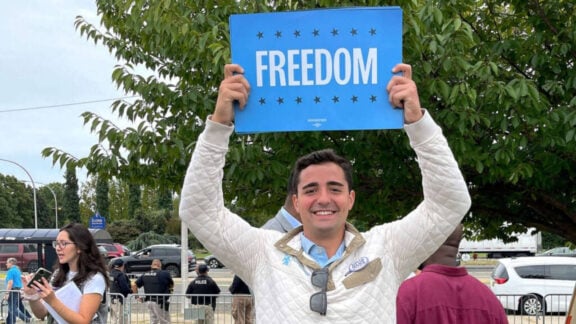Nick Taousanis arrived at a Sydney hospital said to offer 24-hour stroke care, 45 minutes after business hours and was refused a life-saving procedure.
Four days later the 81-year-old passed away – but it would seem unnecessarily so.
Clinicians had been on-site ready to operate, but the support team had already finished their shift, reports Fairfax Media.
“I said, ‘If it’s a cost issue let me know and I will pay’,” said Mr Taousanis’ son George.
“The doctors then proceeded to tell me that there were no more procedures available for my father and the blood clot would continue to block oxygen and blood to his brain causing considerable and irreversible damage to his brain, which in turn would more than likely cause him to die.”
Two days later, George was called to attend a meeting with hospital administrators, where they explained the doctor was ready to perform the endovascular clot retrieval – a manual extraction of the blood clot – but that the support team had finished their shift at 8pm. Mr Taousanis had arrived just before 9pm.
“I was really angry because they were talking about my father’s life,” said George.
“I was appalled that the team did not stay back to assist with the operation.”
But James Mackie, medical director of South Eastern Sydney Local Health District told Fairfax Media that the reason the operation did not go ahead was because Mr Taousanis had suffered a stroke more than six hours earlier, which he says is outside clinical guidelines to perform the procedure and see positive results.
“Although it was unlikely the patient would have gained therapeutic benefit from the procedure, the matter should have been escalated to the Chief Executive for consideration of the procedure taking place outside the usual hours of service,” he said.
Ms Taousanis’ case is not unique – Fairfax Media has confirmed two others, while doctors reference between 250 to 400 – where patients’ lives could have been saved, or avoided lifelong disabilities, despite claims that NSW Health have 24-hour services to perform the procedure.
One of the issues being highlighted in monetary, with those qualified to perform the procedure saying they are not compensated adequately after-hours.
While INR clinicians say the numbers are sufficient, funding has yet to be provided for nurses, radiographers, anaesthetists, theatres and ICU beds.
“There are plenty of doctors, but they won’t fund doctors, nurses and technicians to work after hours,” said INR specialist Jason Wenderoth.
“[Endovascular clot retrieval] is the most significant breakthrough in my career in medicine. It is 10 to 15 times as effective in getting patients back to normal as stenting for coronary artery disease.”
To set up a system similar to that in Victoria, where after-hours cases are allocated to one of two hospitals, it is estimated to cost the NSW government $30 million.








